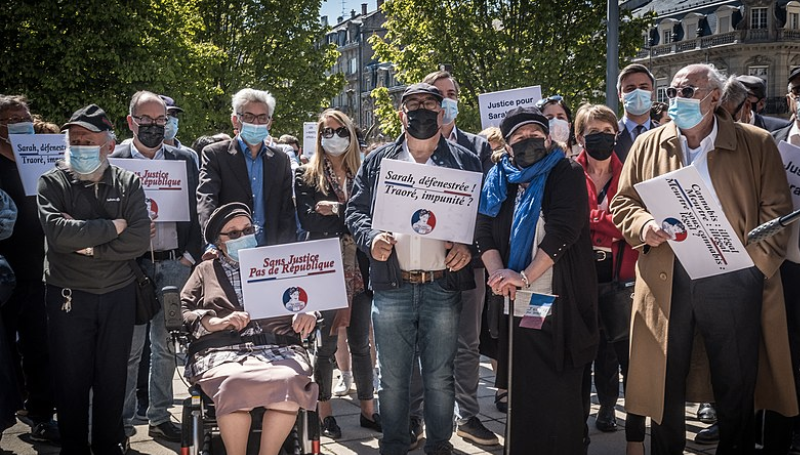Anael Malet
Mosaic, May 2, 2022
“To some laïcité zealots, any unchosen encounter with religious expression in a state setting, however innocuous, undermines the principle.”
French Jews find themselves walking a tightrope, struggling to keep their footing while fending off challenges from two forces that threaten their lives as individuals and as a community. These forces are both opposed to each other and are twined together, at once amplifying and menacing the other no less than they threaten the Jews of France. Of course, that French Jewry—the largest group of Jews in Europe and one with a long and proud history—is in trouble is not news. This has been the case for decades. (Mosaic first covered their challenges in 2013 and proceeded to again in 2014 and 2015.) But these longstanding trends have accelerated and now pose novel dangers.
The first force is radical Islamism. Over the last few decades, Islamist extremists have directly targeted French Jews, murdering at least a dozen and pushing thousands more to change neighborhoods or to leave the country in response to daily humiliations and harassment—which, until recently, French authorities were happy to ignore.
The second force is the spirit of French secularism, known as laïcité. Laïcité is an idea unique to France, and it has a long and complex history. Yet in the last two decades—and even in the last few years—laïcité has, in part as a reaction to Islamism, broken loose of its historic restraints. It now exacts an inescapable daily toll on Jewish life in France. More worryingly, French Jews themselves seem inclined to accommodate laïcité rather than resist it. Their reasons, as we will see, are as understandable as they are short-sighted. If the communal health of French Jewry is to be preserved, Jewish leaders will have to press for their country to moderate one of its most cherished political traditions.
To view the Full original article, click here


